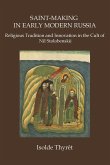The words that accompany our experience of and thinking about death are rarely uplifting: grief, loss, mourning, and, of course, fear. Death and everything surrounding it can be terrifying. People fear death. People fear dying. People fear missing out. People fear the loss of others, too. The loss of a loved one is undoubtedly a source of fear for many. The fear and sorrow bound up in the term "death" make it a morbid subject. Often, the topic is avoided in conversation. Death is too melancholic. Death is too miserable. Death is too personal. Death can be personal, of course. The ways it affects oneself can be intimate and, by virtue of its closeness, it can be a thoroughly private matter. Death is personal when it is one's own death, perhaps one's contemplation of or attempt at suicide, or the death of someone known and/or loved. Death has a part to play in our past, our present, and (unavoidably) our future. Death is an omnipresent possibility. Hidden in the wings, death waits for its cue before the final curtain call. All of us await this death and it is the future of us all. The death described here is one that almost everyone will be familiar with: the end of a life. However, there is another death. A second death. An impersonal death. A depersonalised, dispossessed, ungraspable death - that death is the focus of this thesis.
Hinweis: Dieser Artikel kann nur an eine deutsche Lieferadresse ausgeliefert werden.
Hinweis: Dieser Artikel kann nur an eine deutsche Lieferadresse ausgeliefert werden.








